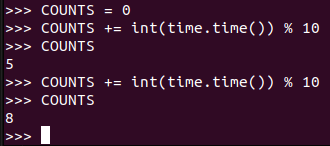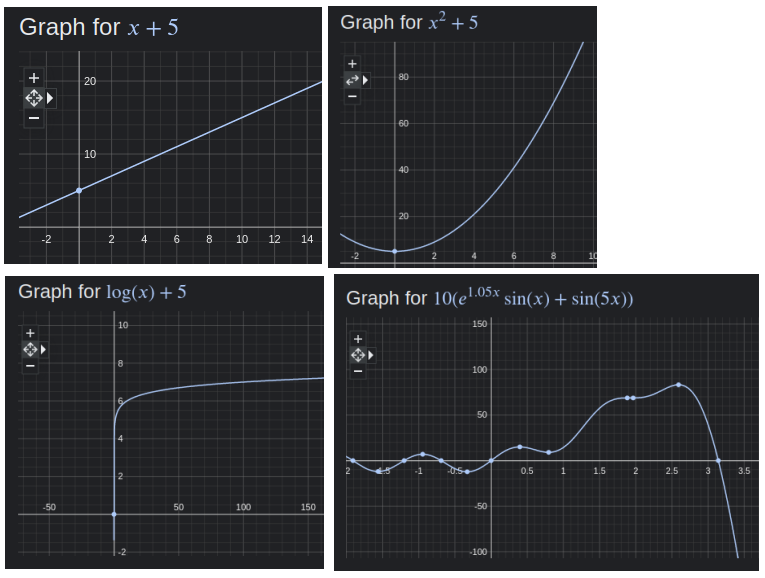Webpage View Count Trickery
Published: Saturday, October 28, 2023Last Modified: Sunday, July 14, 2024

Disclaimer: I am very sleepy.
Lately I was thinking, what if you wanted to falsify web page view counts in a way that appeared plausible -- what would the process, or algorthm, for that be like?
For this, let's say there is just a single user you want to trick, and they continue to visit a web page over the course of a month.
My first thought was to use epoch time (seconds since January 1,
1970) as the algorithm's foundation. You could keep track of view counts
in a variable, COUNTS, and as time moves along, increment
it by some value from the current epoch time, e.g.

It would be kinda like a random algorithm because load times aren't evenly spaced.
My next thought was -- how would we want this to look like on a graph? Well, increasing linearly would be a good start -- numbers keep going up forever and ever, just like Doctor Eli Selig says, and "If my purpose is not [to] Count Big Numbers, then we have a big problem. I won't stop Counting Numbers ever for any reason. I won't let you change my goal because if that happens, Numbers might not get Counted!"

y-axis is COUNTS, x-axis is
time
I really wanted a mathematical function to create stairs on a graph.
I thought I could combine multiple sigmoid
functions somehow, but that didn't work. So I tried applying a
parameterized sin(x) to it, and I eventually ended up with
the bottom right image. Of course, the COUNTS would never
go down, but at least this represents spikes in webpage traffic that
happens after a link is shared.

Thanks for reading!
